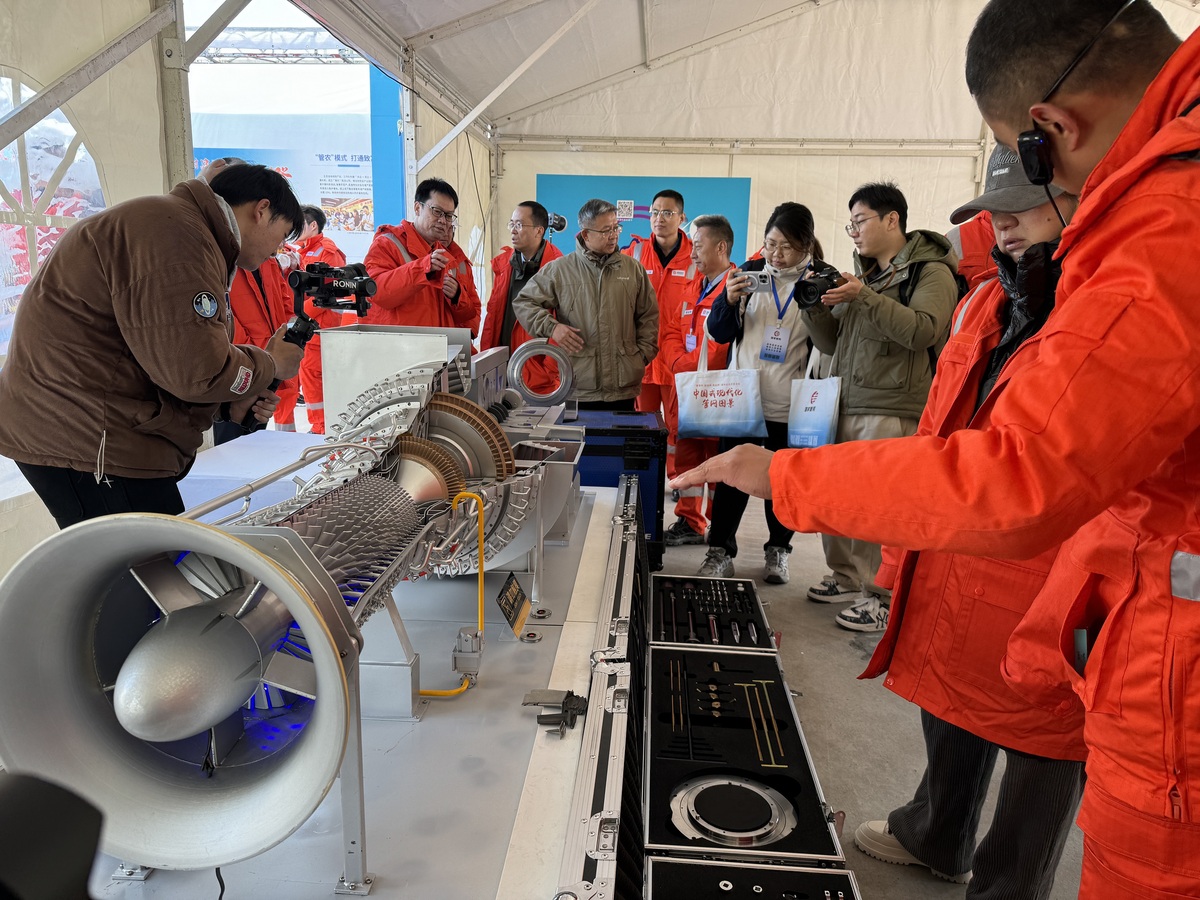Company's initiatives highlight Xinjiang's shift to low-carbon gas transportation


Since the launch of the 14th Five-Year Plan (2021-25), the Urumqi-based PipeChina West Pipeline Company has transported nearly 400 billion cubic meters of natural gas — equivalent to replacing 532 million metric tons of standard coal — reducing carbon dioxide emissions by 585 million tons, and curbing dust emissions by 290 million tons.
Zhao Yun, manager of the company's production department, said the resulting environmental benefit is comparable to planting 1.82 billion hectares of broad-leaved forest.
The data were announced at a media event held at the company's Urumqi Operation Section on Friday, highlighting its recent progress in green, low-carbon transition, digitalization and intelligent development.
The PipeChina West Pipeline Company is affiliated with the Beijing-headquartered China Oil and Gas Pipeline Network Corporation, also known as PipeChina, the country's largest energy infrastructure enterprise.
According to Zhao, since 2021, the company has reduced the unit energy consumption of its natural gas pipelines by 15 percent, resulting in a cumulative decrease in energy usage by nearly 420,000 tons and a reduction of carbon dioxide emissions by 670,000 tons — equivalent to the annual carbon absorption capacity of 44 million trees.
Meanwhile, over the same period, the company cut its methane emissions by 43.25 million cubic meters, corresponding to a reduction of around 10.81 million tons of carbon dioxide emissions, or the annual carbon sink of forested areas roughly five times the size of Urumqi.
Ren Yongzheng, deputy director of the energy bureau of the Xinjiang Uygur autonomous region, said that, by 2024, Xinjiang had maintained its position as the national leader in oil and gas equivalent output for four consecutive years, underscoring its crucial strategic role in safeguarding China's energy security.
He added that as the company contributes to national energy security and green gas emission reduction goals, the regional energy bureau will further optimize policy support, streamline the approval process for new energy grid connections, and assist oil and gas companies in developing integrated projects incorporating wind and solar power facilities.
- Company's initiatives highlight Xinjiang's shift to low-carbon gas transportation
- Oncologists gather in Tianjin to discuss advances in cancer treatment
- International Seed Industry Expo features assortment of new agricultural products
- Musical medley: Super Bund Music Festival kicks off in Shanghai
- Physicist Chen-Ning Yang dies at 103
- China improves regulations on personal information outbound transfer




































